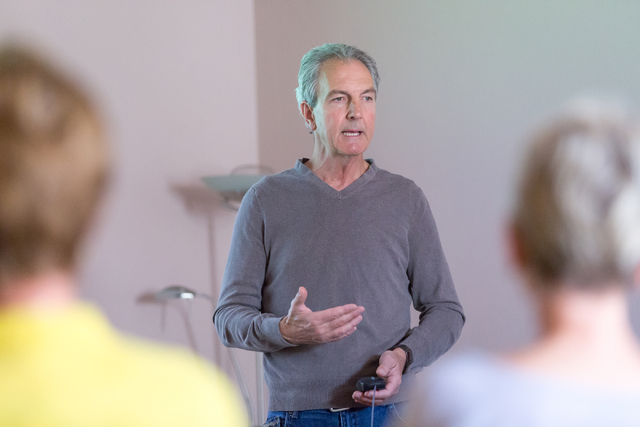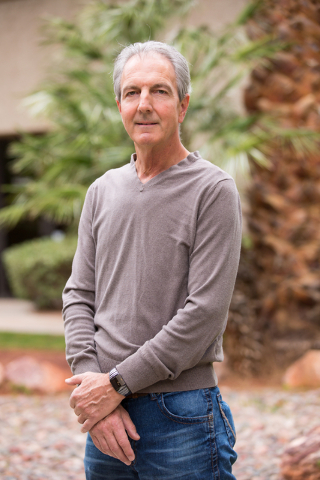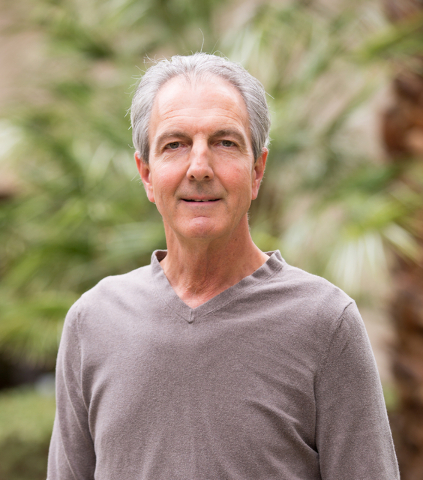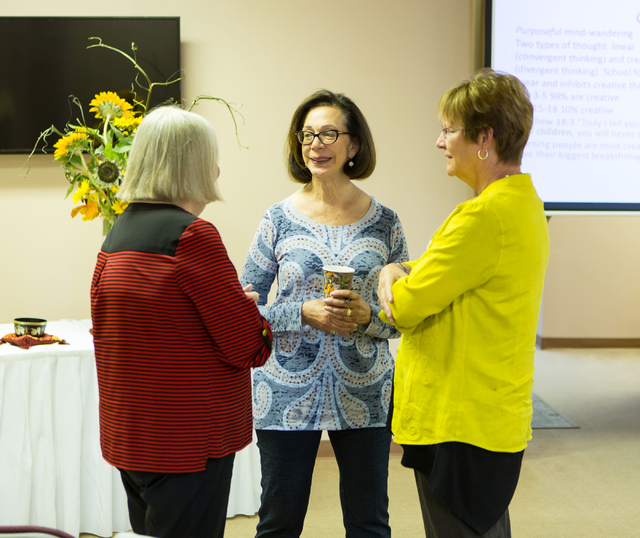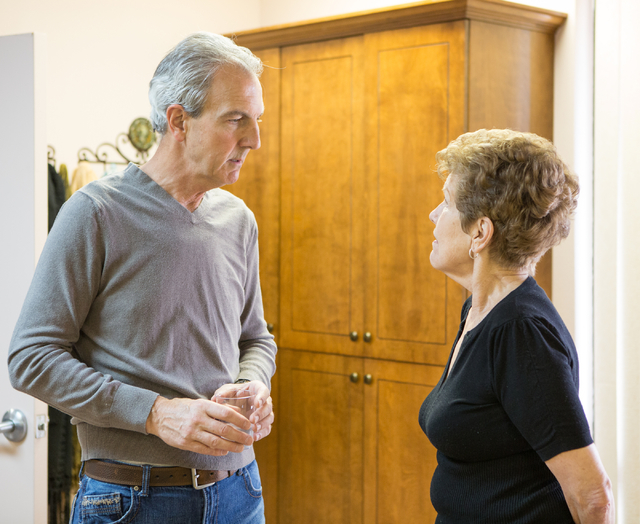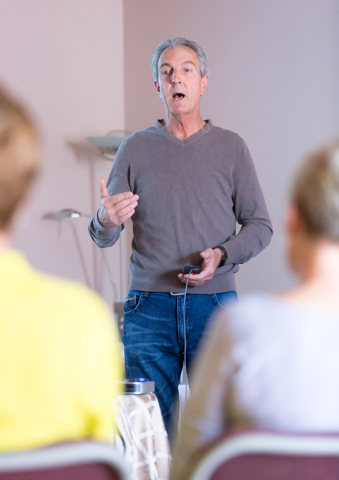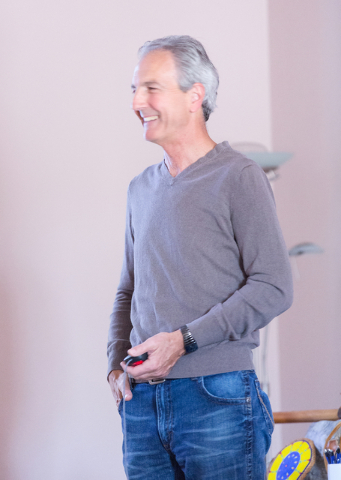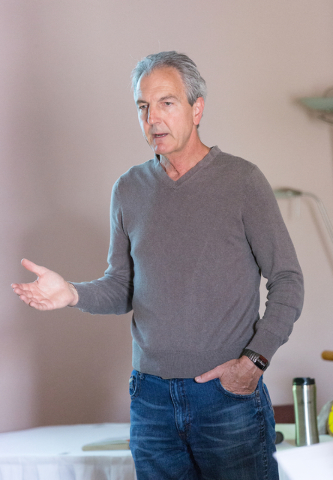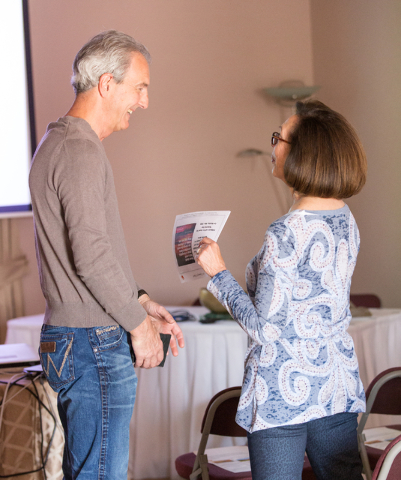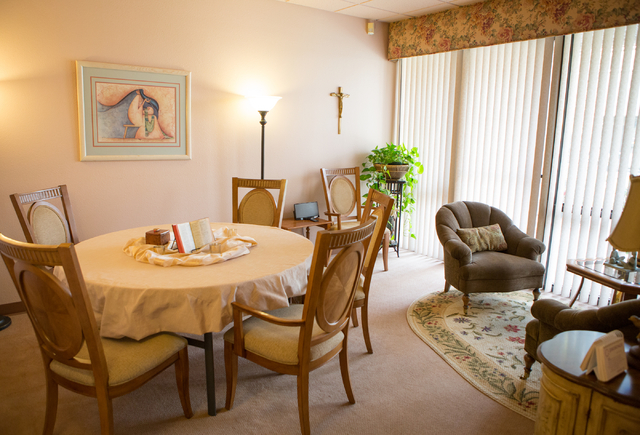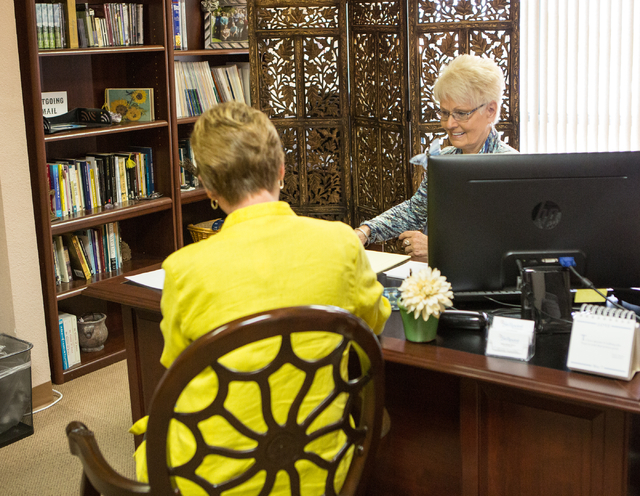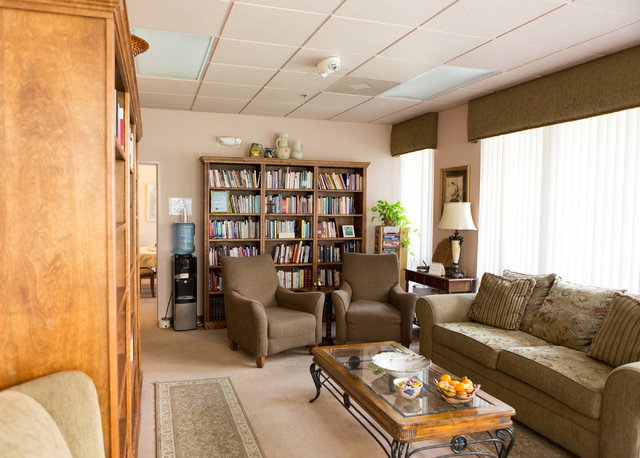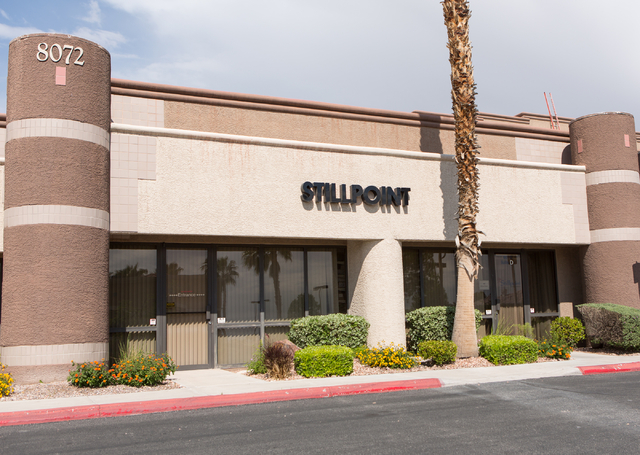Local group stresses benefits of meditation, prayer on health
Does spirituality play a role in an individual’s health?
The link between health and spirituality is one the recently formed Southern Nevada Institute for Spirituality in Healthcare takes very seriously.
Members of the institute believe a contemplative practice of meditation or prayer brings the mind, body and spirit together, resulting in better health care outcomes.
“If we’re thinking about how to turn back health care costs in this nation, then there’s no question the only way to do that is some kind of contemplative practice you do on a daily basis,” the Rev. Gard Jameson, institute co-founder, said.
Contemplative practice, as defined on the institute’s resources, is finding solitude to quiet the mind and rest in the Presence of the Divine.
Jameson believes a consistent contemplative practice reduces stress and negative emotions such as anger, anxiety and fear. Three attributes of a contemplative life are solitude, stillness and resting.
“You recognize the spirit is actually the driver,” Jameson said. “If you feed that, then the rest begins to emerge quite naturally.”
Chronic stress, according to the American Psychological Association, is linked to anxiety, high blood pressure, heart disease, depression and obesity. When stressed, the body produces the “stress hormones” epinephrine and cortisol.
“The issue is, does spirituality have something to say about stress?” Jameson said. “It does. With neurosciences emerging from places like UCLA and Stanford, people are discovering that different kinds of contemplative practices are not only reducing stress levels but actually growing brain cells.”
Jameson referred to Dr. Rick Hanson, a psychologist and senior fellow of the Greater Good Science Center at UC Berkeley’s website, which states contemplative practice releases good chemicals such as serotonin into the body.
“What we have in our culture is a very high level of stress constantly bombarding us,” Jameson said. “If you sit and consent to the presence of God, the action is both healing and transformative and things begin to change.”
Jameson believes contemplative practice produces positive results, even for those with no religious connection.
“This isn’t a question of creed or belief, it’s a question of experience,” Jameson said. “Are you willing to engage in this particular method in order to have the experience?”
Jameson recommends 20 minutes of contemplative practice in the morning and evening to reduce stress levels and positively impact the body’s chemistry.
“I encourage people to give it 30 days,” Jameson said, then laughs. “And if you’ve got a problem there’s a money-back guarantee. However, we don’t charge.”
Jameson’s inspiration for the institute came unexpectedly.
Looking at a model for a Nevada medical center, Jameson traveled with a small team of community leaders led by Eric Hilton to Houston to tour the Texas Medical Center in 2013.
“We learned they had 52 different institutions,” Jameson said. “I became particularly interested in one: the Texas Institute for Spirituality and Health.”
Returning to Southern Nevada, Jameson approached Dr. Marc D. Baxter, of Baxter Health Center, to co-found the Southern Nevada Institute for Spirituality in Healthcare. It is a 501(c) 3 nonprofit. Currently, the institute is staffed by one part-time employee.
The institute’s mission is “to increase awareness of the role spirituality plays in healing the negative emotions, in coping with chronic illness and in maintaining optimal health.”
“Gard decided to create a separate entity here in Nevada that would help enlighten our community about both the benefits of spiritual pursuits to enhance physical health and the benefits of enhancing physical health to promote enhanced spiritual health,” Baxter said. “He appreciated that my perspective and skills in this area as a physician would be the perfect complement to his major focus from the spiritual perspective.”
Together they opened a small office at 5281 S. Eastern Ave. about two years ago, incorporating a similar mission as the Texas Institute.
With limited staff and resources, Jameson said the main focus of the Southern Nevada Institute is education and teaching contemplative practice to health care providers, members of religious institutions and the general public.
The Southern Nevada Institute uses various methods including the adoption of the program into the Interfaith Council, where Jameson serves as chair. The Interfaith Council, chartered in 2005, provides a forum to celebrate and respect all faiths and cultural traditions.
Baxter and Jameson also take turns speaking on a variety of topics an average of four times a year. The events are held primarily at the Stillpoint Center for Spiritual Development.
“Stillpoint was founded to offer a safe space where these seekers can gather, and find nourishment in the ancient spiritual practices of prayer, spiritual direction and spiritual reading,” center founder Roisin O’Loughlin said about why Stillpoint hosts several of the institute’s events. “Individual and social transformation is our hope.”
Jameson is also talking to local medical schools about incorporating contemplative practice into the curriculum.
Eventually Jameson wants to expand the Southern Nevada Institute to offer services similar to its Texas counterpart, including more seminars and resources.
“I’d like to see us post PowerPoint presentations as webinars on our website,” Baxter said about expanding the organization’s outreach. “This will both help people directly and also draw more attention to who we are and what we do.”
“It’s a new pioneering frontier,” Jameson said. “But for me it’s an exciting opportunity to begin to change the dialogue in health care.”
For more information, call 702- 900-6840 or email info@interfaithsn.org.



